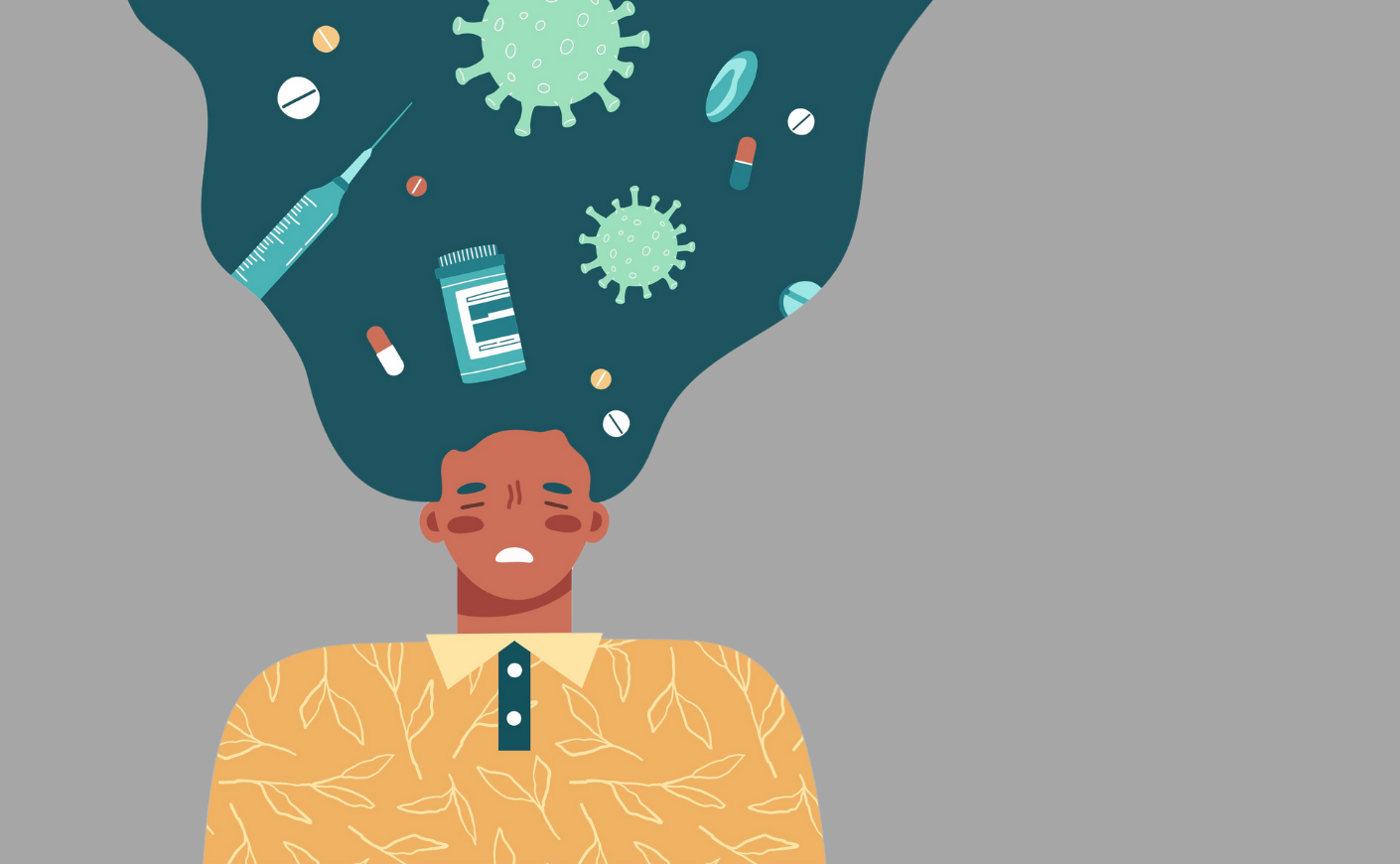At this point, most everyone’s heard of long Covid. Stories abound of once perfectly healthy people who now suffer from brain fog and fatigue, or who have become completely debilitated because of the disorder. Akiko Iwasaki, MD, a professor at the Yale School of Medicine, told us she fears a “parallel pandemic” of long Covid patients could be on the horizon.
But there’s still an “abyss of ignorance” surrounding long Covid, says Harlan Krumholz, MD, a cardiologist and the director of the Yale Center for Outcomes, Research, and Evaluation. And researchers are now racing to learn more about this perplexing syndrome.
For a special two-part episode of Katie's podcast, Next Question, she spoke to Dr. Iwasaki and Dr. Krumholz about what is currently known about the disease, who’s most likely to develop it, what’s believed to cause it, and more.
What exactly is long Covid?
Long Covid describes people who have lingering symptoms after experiencing an acute phase of Covid-19 — with either severe, moderate, or even asymptomatic cases, Dr. Iwasaki says. The CDC defines long Covid as symptoms that persist for at least four weeks after infection. The WHO classifies it as symptoms that last for at least two months, about three months after infection.
What kind of symptoms are associated with long Covid?
More than 200 symptoms have been reported, according to Dr. Iwasaki. The common ones are fatigue, brain fog, memory issues, and shortness of breath. But patients have also reported a number of symptoms that aren’t normally associated with post-viral syndromes, Dr. Krumholtz says, like tinnitus, gastrointestinal issues, changes in menstrual periods, and internal tremors.
How severe is long Covid?
It really differs dramatically from person to person, so we also spoke to some long Covid sufferers to get a better understanding of what they're experiencing.
Some are so severely affected they’ve become bed-bound, according to Dr. Iwasaki. "They suffer from symptoms that are quite alarming and absolutely debilitating." Others suffer from multiple symptoms and really can’t function the way they used to, while some just have a limited set of symptoms that linger for an extended period, Dr. Iwasaki adds.
How common is long Covid?
That’s still a matter of debate. But Dr. Iwasaki says "recent studies indicate that between 10 percent to 30 percent of people with mild Covid-19 develop long Covid. Those who have been hospitalized are much more likely to develop the syndrome, with about 50 percent to 75 percent reporting that they have lingering symptoms."
Who tends to develop long Covid?
There are two demographics that seem to be most susceptible, Dr. Iwasaki says. Older men, who are more likely to have been hospitalized, are also more likely to develop long Covid. That’s partly because, if they were intubated they could be suffering from significant tissue damage. And if they received care in the ICU, they may have what’s known as post-intensive care syndrome, which can cause a number of symptoms that last after a patient’s been discharged.
Middle-aged women also appear to be more likely to develop long Covid. Dr. Iwasaki says that’s because they’re more prone to autoimmune disease, which is suspected to be one of the drivers of long Covid.
What’s believed to cause long Covid?
There are several hypotheses out there. One is that remnants of the virus linger in certain patients, which can lead to chronic inflammation, accounting for persistent symptoms. Another theory is that a Covid-19 infection could trigger autoimmune disease, causing the immune system to attack the body. Some researchers think Covid-19 could reactivate viruses that all of us have but are typically dormant, like the Epstein-Barr virus. Others think the virus may change the gut microbiome, shifting the mix of bacteria that live in the gut and possibly causing inflammation, Dr. Iwasaki says.
Are treatments for long Covid available?
Dr. Iwasaki says researchers are still trying to pin down the underlying mechanisms of the disease so they can develop appropriate therapeutics. For instance, if they can determine that long Covid is caused by a virus that lingers in the body, they can develop an antiviral drug or use monoclonal antibody therapy, she says. Or, if it’s thought to be driven by an autoimmune disorder, they can prescribe immunosuppressants.
How can you prevent long Covid?
The most important thing is to get vaccinated. That will both reduce your risk of getting Covid-19, and even if you get a breakthrough infection there are some studies that show the vaccine may also reduce your risk of developing long Covid, says Dr. Iwasaki.
Plus, you can still practice some of the safety measures, like mask-wearing and social distancing, to lower your exposure to Covid-19.








